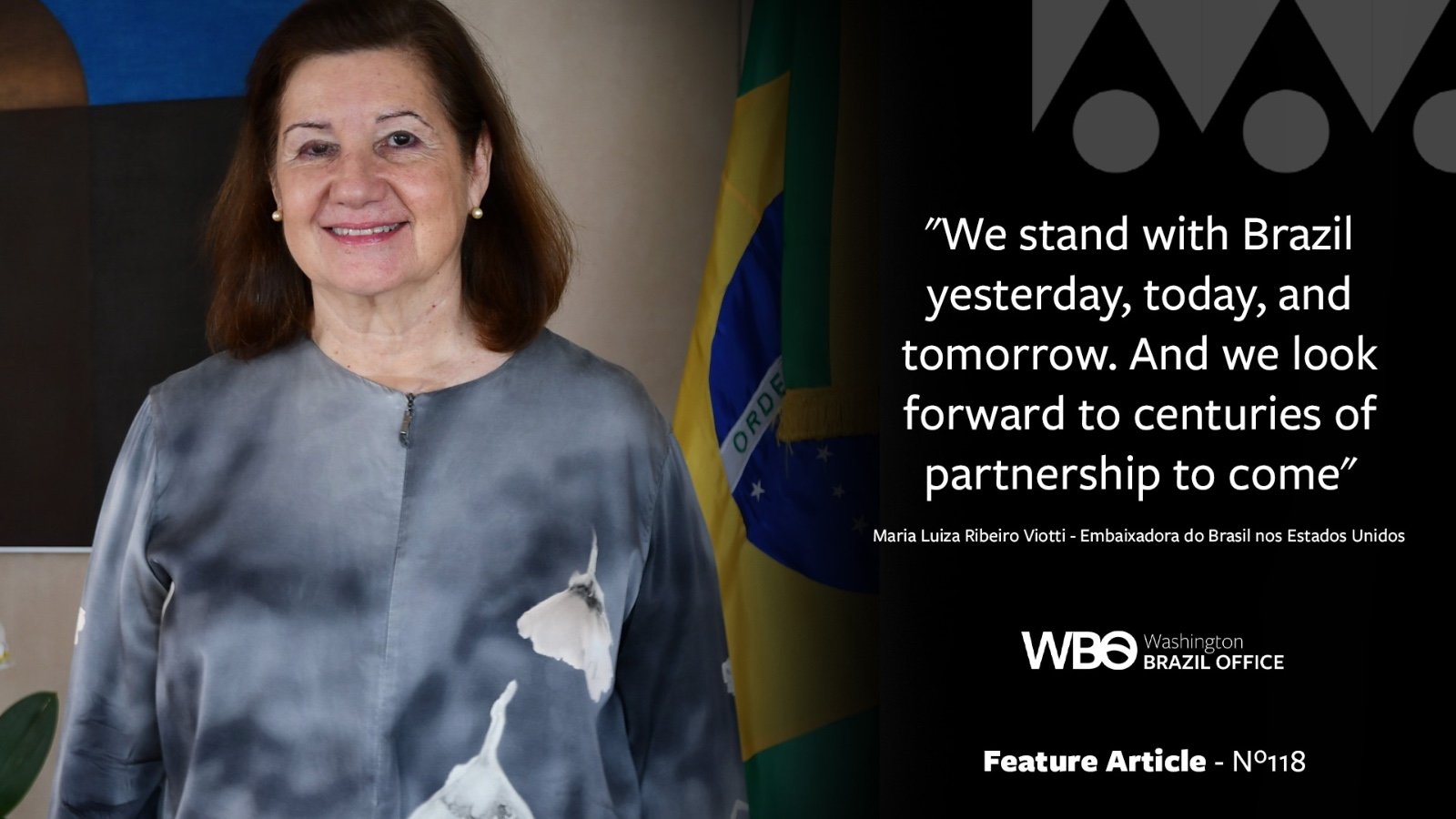Brazil and the United States:Two Hundred Years of a Vigorous, Dynamic, and Multifaceted Partnership
Maria Luiza Ribeiro Viotti, Ambassador of Brazil to the United States. This article was written especially for issue 118 of the WBO weekly newsletter, dated May 24, 2024. To subscribe to the newsletter, enter your email in the field below.
Two hundred years of diplomatic relations is a remarkable milestone. This is a story not just of two countries, but of a partnership that has endured and evolved alongside the very history of the Western Hemisphere and the world. Less than two years into our life as an independent nation, the United States became one of the first countries to formally welcome Brazil to the world stage. This early act of friendship set the tone for a relationship that would weather many storms. Over the years, our ties grew, trade flourished and cultural exchanges blossomed.
Today, the two countries have a dynamic and diverse agenda, based on shared values and common interests. Democracy, human rights, the promotion of sustainable development, and the fight against climate change are front and center in our work. We seek to strengthen our cooperation in multiple areas, ranging from trade and investment to energy, health, science, technology, security and defense, education, and culture.
The United States continues to be Brazil's most important trading partner in services, and second in goods, as well as the main origin of foreign direct investment in Brazil. Since last year, there have been important announcements of new US investment projects in Brazil. The United States is also becoming an important destination for investments by Brazilian companies, which have already reached US$43 billion, creating wealth and jobs in this country. Brazil is increasingly seen as a country that holds the potential to help meet some of our century's biggest challenges: producing food, generating clean energy, supplying critical minerals and fighting climate change.
The launch of the Workers' Rights Partnership by Presidents Luiz Inácio Lula da Silva and Joe Biden in September 2023 showed our joint commitment to fair and sustainable economic development. It reaffirmed our desire to work together to fight exploitation, promote decent work, combat the increasing precariousness of working conditions, and address the challenges posed to the labor force in the digital era.
The drive towards a low-carbon economy motivates the ongoing discussions of a “New Partnership for the Energy Transition” between Brazil and the United States. Stronger collaboration can support sectors in which our countries have comparative advantages and shared interests, such as clean hydrogen. Indeed, recent studies indicate that Brazil and the United States hold the potential to become the leading producers and exporters of clean hydrogen within a decade.
Democracy and human rights are also important concerns our countries share. Recent challenges faced by Brazil and the United States have brought us closer together and confirmed the strength of our respective democratic institutions. The advancement of human rights and the promotion of social inclusion are also high on our agenda.
On May 20, a few days before the date on which we celebrate the bicentennial of our diplomatic relations, the second edition of the Brazil-United States High-Level Dialogue was held in Washington. The meeting was co-chaired by the Deputy Minister of Foreign Affairs, Ambassador Maria Laura da Rocha, and the Deputy Secretary of State, Kurt Campbell. The breadth of topics discussed by the two the delegations confirm the importance that Brasília and Washington attach to this relationship, which transcends the bilateral realm and encompasses regional and global challenges.
In this bicentennial year, Brazil and the United States have before them a unique opportunity to leverage their shared values and interests, the vitality and dynamism of a longstanding cooperation in order to build an even stronger partnership, with tangible, long-term results for both societies and a positive impact for our region and beyond.

